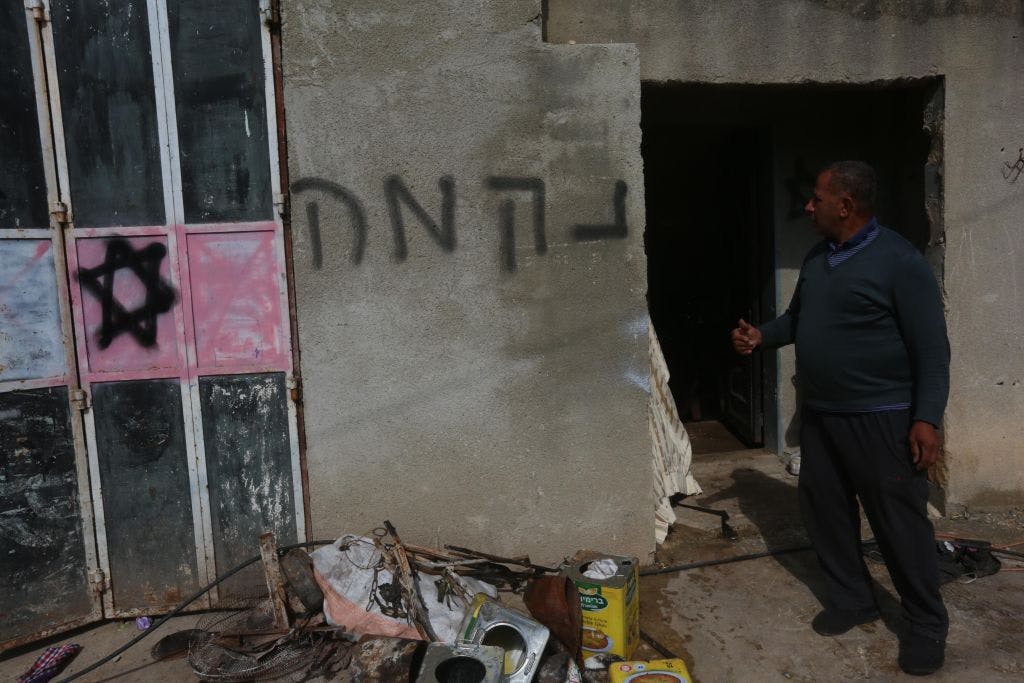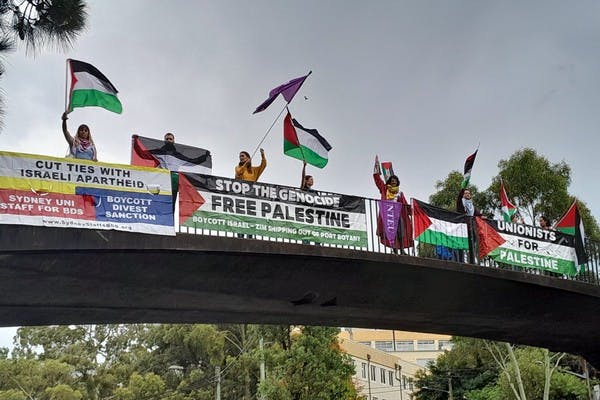Published: 31 October 2023
Last updated: 5 March 2024
Shlomi Eldar spent a decade reporting from Gaza. He says Hamas has proven it can survive and regroup, and Israel’s only option is a massive blow that will set it back 20 or 30 years.
When Shlomi Eldar covered the Gaza Strip for Israel’s Channel Ten from 2003-12, his work stood out by the way he conveyed the humanity of those he encountered and drew his own independent conclusions rather than parroting the official Israeli army version of events.
In one unforgettable instance during the devastating Operation Cast Lead in 2009, Eldar was on air live reporting from the studio and trying to help a Gaza acquaintance, Dr Izzedin Abuelaish, whose home had been struck by an Israeli tank shell that killed his daughters.
It was not only Eldar’s decision to put these horrors on speaker phone for the entire country to hear but also his trying to get a location to send an ambulance that brought home to viewers that Palestinian civilians with no ties to Hamas were being killed in the war.
In 2012, Eldar sought to explain Hamas to Israeli readers in a widely acclaimed book Getting to Know Hamas. In later years he made documentaries on a variety of subjects through a decidedly left-wing lens, riling Israel’s right-wing culture minister Miri Regev.
He moved to the US for several years, working in research institutes, but decided to move back to Israel even though he foresaw a dark future for Israel and its neighbours. Eldar still does research on Hamas and is planning a new edition of his book, this time to also appear in English.
There is nothing more sacred to Muslims in Gaza than to be a shahid, a martyr. I thought it was just a slogan.
Like all of Israel, he was caught by surprise by the invasion and slaughter of October 7. But along with the shock and horror, he is also castigating himself. He should have done a better job analysing and covering Hamas, he says. “I did soul searching and I cry,” he told The Jewish Independent in an interview.
Eldar’s distress foreshadows what is likely to be painful soul searching for many on the Israeli left now confronted with questions about whether they were right in perceiving occupation abuses as being the main malady that had to be cured.
It is now likely that there will be even less space for leftists to raise questions in this war about killings of civilians by the IDF, including during reported airstrikes in areas of the Strip to which Israel had urged civilians to flee for safety.
Eldar told The Jewish Independent: “I’m a journalist and for decades I tried to convince the Israeli public that the Palestinians are humans and not to dehumanise them and also I really believed that while you can’t make peace with Hamas, you can reach things with them.”
“I was a prisoner of the concept that if it would be good in Gaza, it would guarantee us quiet and them quiet. I was wrong. I thought you could reach certain arrangements with them.”
Now Eldar argues that Hamas and the Nazis are in the same category, albeit with a distinction: the Hamas atrocities were characterised by the direct physical involvement of the perpetrators of the slaughter, something he contrasts with Nazis who turned a faucet on the gas chambers and were removed from their victims.
I believed that while you can’t make peace with Hamas, you can reach things with them. I was wrong.
Eldar recalls that a Hamas terrorist phoned his family in Gaza to tell them his hands were bloody after he murdered a husband and wife. “I now tell myself I should have identified the evil,” Eldar says.
“The evil comes from a place I left aside,” he says. Now, however, he thinks that Hamas’s atrocities emanated from their view of Islam. “For them, in the name of religion, in the name of the Koran everything is permissible, that when you kill Jews, when you murder babies, it’s jihad, which guarantees you a place in paradise, that you’ll be a shahid (martyr).
“And there is nothing more sacred to Muslims in Gaza than to be a shahid. I [mistakenly] thought it was just a slogan without intention behind it.”
As a journalist, Eldar met frequently with Hamas leader Ismail Haniye, now based in Qatar. “I knew him well. I didn’t expect him to be capable of such things. Already in 1994 he discussed with me a hudna (truce). And he did so also after the [2006] elections.”
Eldar described Haniye as having “a certain charisma”.
“He can pick up a child and hoist him on his shoulders, he can play football. I’m not sure he was one of the planners but he was full of satisfaction with what happened and he’s a war criminal who should be tried in the Hague.”
“Hamas is not a terrorist organisation struggling against Israel to solve the occupation. He who murders infants, slaughters families and burns infants is not much different from Nazis.”
Just as Nazi leaders were tried at Nuremberg, Hamas political and military leaders must be tried, Eldar said.
It’s like gangsters who come into the house holding a submachine gun in one hand and an infant in the other. What do you do?
Eldar said he would like to see Hamas destroyed. But he believes this is not possible. “It’s a terrorist group established deeply in society.”
“In the past, they’ve proven they have the ability to recover and to survive,” he said, noting that in the period before the Second Intifada the group was in crisis but that they later revived their military wing so successfully that they could claim credit for Israel’s 2005 withdrawal from Gaza.
“They are really planted among the residents of Gaza; they have religious faith. It’s tough to eradicate them.”
Still, Eldar says, Israel has to use overwhelming military force “to prevent them from being able to carry out another slaughter. What is needed is one blow from which it will take them 20, 30 or 50 years to recover,” he says.
He dismisses those who blame Israel for harming civilians. “It’s like gangsters who come into the house holding a submachine gun in one hand and an infant in the other. What do you do? Allow them to kill you? I think not.”
Photo: Shlomi Eldar (Shay Cohen)



